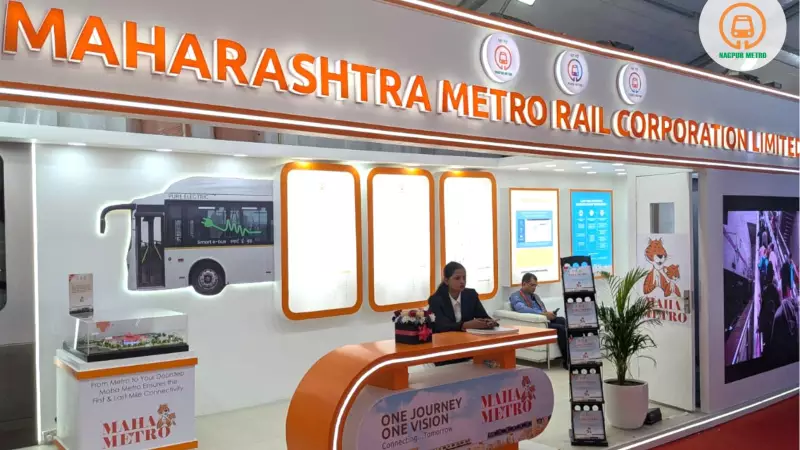
Pune Metro Takes Major Step to Solve Last-Mile Connectivity Challenge
In a significant move to enhance urban mobility, Pune Metro has announced plans to appoint a specialized agency to design and implement a comprehensive feeder bus service in collaboration with Pune Mahanagar Parivahan Mahamandal Ltd (PMPML). This initiative aims to bridge the critical last-mile connectivity gap that has been a major concern for metro commuters since the service began operations.
The decision, revealed on Wednesday by Pune Metro spokesperson Chandrashekhar Tambekar, comes as part of a broader strategy to increase metro ridership by making public transportation more accessible and convenient for Pune residents. The expert agency will be responsible for conducting detailed studies and proposing a concept-level feeder system that addresses the specific needs of commuters across different metro stations.
Comprehensive Feeder System Planning Underway
The planned feeder bus system will cover the entire Pune Metro Rail Project (Phase-1), which spans an impressive 33.215 kilometers with 30 stations and two depots. The network is divided into two major corridors: the North-South Corridor running from Pimpri Chinchwad Municipal Corporation (PCMC) to Swargate with 14 stations, and the East-West Corridor stretching from Vanaz to Ramwadi with 16 stations.
According to Tambekar, the final output will be a detailed feeder service planning and feasibility study that Maha Metro will use to coordinate implementation with PMPML. "In the Metro system, the route is predefined, and connectivity to all parts of the city is impossible. So, the need for establishing a secondary system will leverage the public transport system and help augment the ridership of the primary system by providing proper connectivity," he explained.
The initiative represents a crucial step toward creating an integrated public transportation ecosystem in Pune, where different modes of transport work in harmony to serve commuters efficiently.
Two-Phase Implementation Strategy
The project will be executed in two distinct phases to ensure systematic implementation and optimal results. The first phase will focus on feeder bus route enhancement feasibility planning, which includes rationalizing existing city bus routes in collaboration with local transport authorities.
Advanced technological solutions will play a key role in this process, with the agency employing big data analytics and AI-powered solutions to identify demand regions, design optimized routes, and create appropriate models that maximize passenger coverage. The implementation will also include monitoring and optimization support to analyze the network's performance continuously.
Tambekar emphasized that the feeder bus enhancement plan will primarily be a planning-oriented, feasibility study focused on estimating additional bus requirements to complement the Pune Metro network effectively. The insights gained will guide the strategic deployment of newly procured or existing buses along high-demand yet underserved corridors.
Multi-Modal Approach Including E-Rickshaws
In an innovative approach to address varying commuter needs, the plan includes provisions for shared mobility modes like e-rickshaws for low-demand pockets. This flexible strategy recognizes that different areas around metro stations may require different solutions based on passenger density and local infrastructure.
The agency will conduct GIS-based analysis of PMPML routes within 500 meters to 6 kilometers of metro catchments, reviewing metrics such as route frequency, load factor, and alignment overlap with the metro. Underserved and poorly connected zones will be specifically identified for targeted interventions.
Maha Metro will provide the consultant with crucial information regarding road geometrics, road safety, and availability of bus stop infrastructure to ensure the proposed solutions are practical and implementable.
Political Support and Existing Success Stories
The initiative has received strong political backing, with BJP leader Sandeep Khardekar highlighting the success of a similar feeder service already operating at the SNDT Metro rail station. The SNDT station service, funded from the Local Area Development Fund of Minister Chandrakant Patil, who represents Kothrud Assembly, has been receiving tremendous response according to Khardekar.
"The feeder service gave a boost to the footfall of Pune Metro as more commuters started parking their two-wheeler and four-wheeler vehicles near the station and opting for public transport," Khardekar stated, emphasizing that an efficient feeder bus service at each station is crucial for improving metro efficiency.
Adding to the momentum, City MP Murlidhar Mohol recently confirmed that the 1,000 electric buses procurement approved by the Central Government for PMPML will significantly contribute to providing feeder bus service for metro commuters, addressing last-mile connectivity challenges with environmentally friendly solutions.
The comprehensive planning process will also involve reviewing existing transport documents, including the Comprehensive Mobility Plan (CMP) for Pune Metropolitan Region Development Authority (PMRDA), Pune and PCMC master plans, City Development Plans (CDPs), and Transit-Oriented Development (TOD) policy frameworks.
This ambitious project represents Pune's commitment to creating a sustainable, efficient, and integrated public transportation system that serves the growing needs of its residents while reducing traffic congestion and environmental impact across the city.






